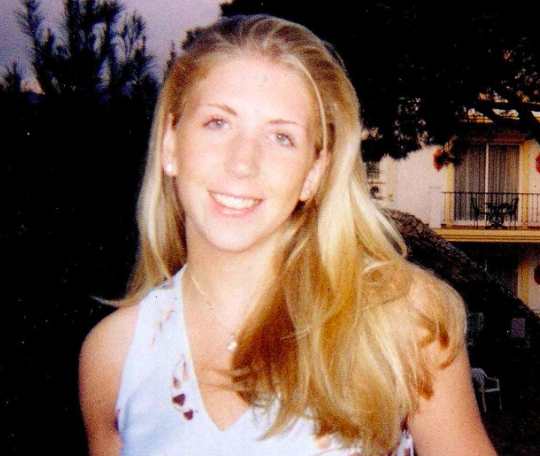Netflix’s “Missing: The Lucie Blackman Case” details the disappearance and tragic murder of the 21-year-old British woman Lucie Blackman. The documentary was released on July 26. At the time of her death, Lucie was employed as a hostess at the Casablancas nightclub in Tokyo.
Here’s a look at the timeline of events surrounding Lucie Blackman’s disappearance and tragic death, as well as the subsequent trial of Japanese businessman Joji Obara.
May 4, 2000:
Lucie Blackman, a 21-year-old from Sevenoaks, Kent, and her close friend Louise Phillips, also 21, from Bromley, Kent, reached Tokyo on 90-day tourist visas. After leaving their jobs with British Airways, the two women were eager to explore Asia. They settled into a first-floor room in a lodging house located near Tokyo’s iconic Olympic Stadium. To support their travel and stay in Tokyo, Lucie and Louise secured employment at the Casablanca bar, a popular establishment in the Roppongi district.
Also Read | Where is Joji Obara, serial rapist who was charged with Lucie Blackman’s murder, now?
July 1, 2000:
After making a phone call to her friend, Lucie mysteriously disappears. She informed Louise that she intended to spend the afternoon with a man, but after that conversation, there was no trace of her. At the time of her disappearance, Lucie was believed to be wearing a one-piece black dress and black sandals. Additionally, she adorned herself with a silver necklace featuring a heart-shaped diamond and carried a black handbag.
July 2, 2000:
Louise receives a telephone call from a man who identifies himself as Akira Takagi. He informs Louise that Lucie has become entangled with a religious cult and is presently undergoing “training.” The caller ominously adds that Louise will not have the chance to see her friend again.
July 3, 2000:
With mounting concern and worry, Louise called the Blackman family in England to share the news of Lucie’s disappearance.
July 4, 2000:
Lucie’s younger sister Sophie flew to Japan to try to find her.
July 12, 2000:
Lucie’s father Tim, a property developer from the Isle of Wight, arrived in Tokyo.
August 1, 2000:
The Tokyo police were sent a letter from an individual claiming to be Lucie, where the person stated, “I am pursuing my own desires, so kindly refrain from bothering me.” However, both the detectives and her father brushed it off as a fraudulent attempt.
September 20, 2000:
Filled with despair, Lucie’s father decides to return to England after exhausting tens of thousands of pounds in an unsuccessful attempt to locate his daughter.
Also Read | Who is Louise Phillips, Lucie Blackman’s friend?
October 11, 2000:
The police interrogate Joji Obara, a 48-year-old businessman, regarding the disappearance of Lucie, along with allegations of drugging and sexually assaulting other women.
February 9, 2001:
Authorities discover dismembered body parts buried in a cave located on a beach near Joji Obara’s coastal residence near Tokyo. Subsequent investigations confirm that the remains belong to Lucie.
March 30, 2001:
Lucie’s funeral was held close to her mother’s residence in Kent.
April 6, 2001:
Following an extended investigation, the police apprehend Joji Obara in connection with the death of Lucie. He had been in police custody since October on charges related to drugging and sexually assaulting other women. Subsequently, Obara faces additional charges related to Lucie’s death. In court, he pleaded not guilty to the charges of fatal assault or rape resulting in death in relation to the case.
October 10, 2002:
Joji Obara went on trial in Tokyo, facing multiple charges, including the abduction of Lucie, rape resulting in death, and the disposal of her body. In addition to these charges, Obara was also accused of the murder of Australian Carita Ridgway, another foreign hostess who allegedly died after being drugged and raped by him in 1992. Moreover, he faced charges of raping eight other women in separate incidents.
Also Read | Lucie Blackman murder trial: Why was Joji Obara acquitted?
April 24, 2007:
In a significant turn of events, Joji Obara was acquitted of Lucie’s manslaughter charge during the trial. However, he was found guilty of eight counts of rape and was also convicted for the rape and death of Australian Carita Ridgway, who died in 1992 after being assaulted by him. Consequently, Obara received a life imprisonment sentence for these convictions.
December 16, 2008:
The Tokyo High Court upheld Obara’s guilt for dismembering Lucie’s body and leaving it abandoned. However, due to Obara already serving a life sentence for his previous convictions, the court did not alter his sentence.







